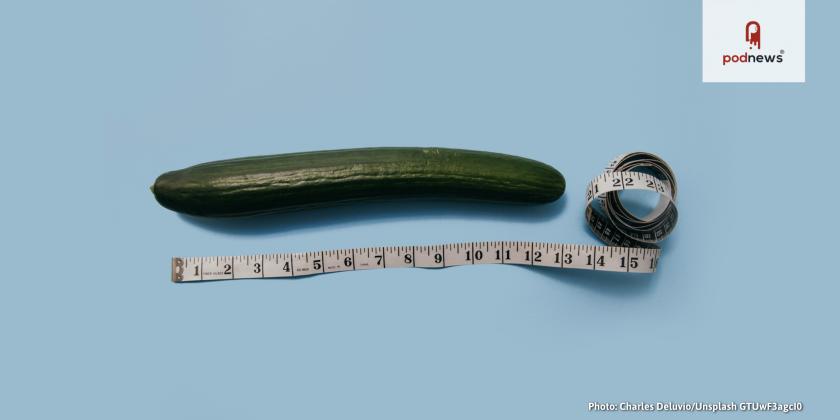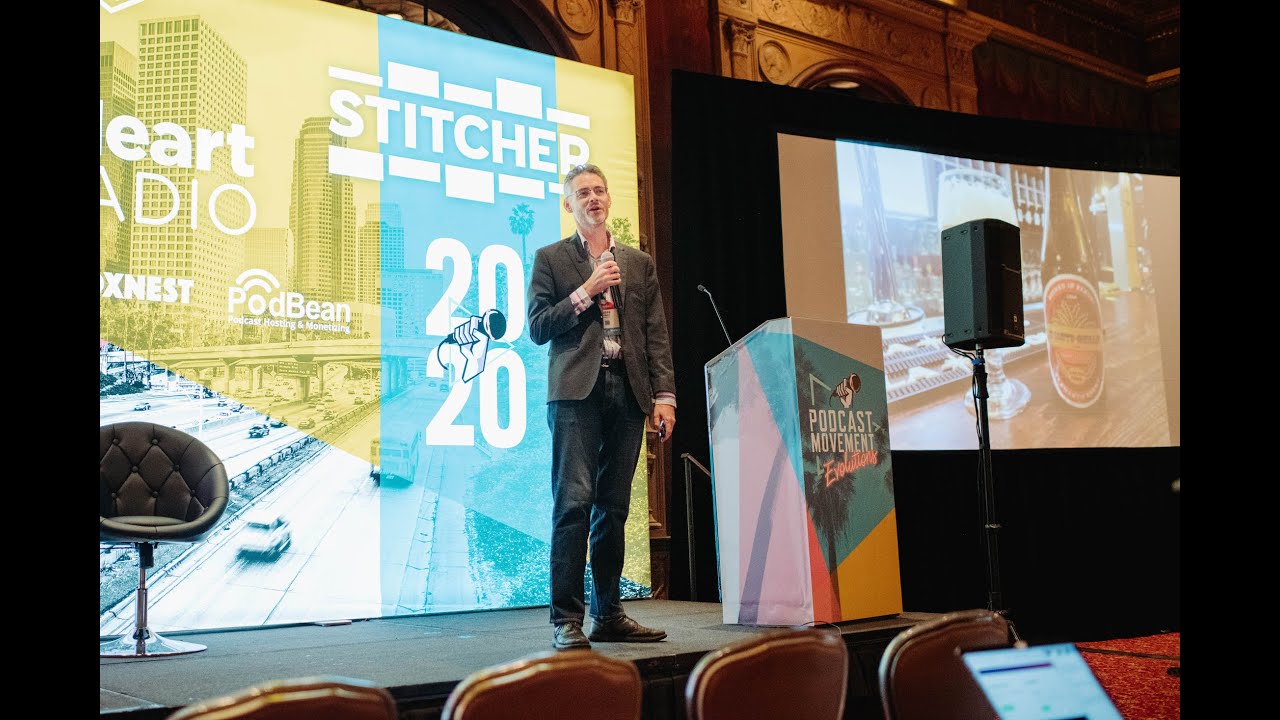
Analysis: Is Spotify REALLY bigger than Apple Podcasts?

This article is at least a year old
The “Spotify vs Apple” story is one of the more divisive areas of podcast reporting.
Voxnest’s claim today that Spotify is beating Apple in more than 80 markets is flatly denied by many other podcast hosts and by many podcasters. Discussions on Facebook are full of people comparing their own figures: and for most, Spotify comes in at roughly 10%. So - how can Spotify be #1? What’s the truth?
Voxnest’s report shows Spotify has, globally, 41% “share of voice” vs Apple Podcasts’ 59%. I don’t know what “share of voice” means; but having clarified these numbers with Voxnest in the past, it looks like the intent is to say “Of all downloads from Spotify and Apple, Spotify has 41% of them”.
Our figures show the difference that makes. For the Podnews podcast for June 2020, in total, Spotify got 1.8% of downloads. But if you just look at Apple vs Spotify, Spotify has 6.7%. (The bulk of our plays are via news briefings on smart speakers).
Libsyn’s March figures - the last I’ve typed out - shows Spotify on 9.1% of all downloads; but if you just look at Apple vs Spotify, Spotify’s on a rather larger 12.3%.
Voxnest point out that the data is from the Voxnest Audience Network, which includes Voxnest and Spreaker as well as a number of third-party podcast publishers. The difference in the numbers, they suggest, is because “our users are truly spread out across the globe” (by which they’re suggesting that Libsyn has more of a US focus).
Does ad-insertion explain it?
Some podcast hosts we’ve spoken to think the difference is something else.
Whenever you publish a new episode, Spotify downloads a copy. Change the audio URL - perhaps to insert a different programmatic ad - and Spotify will download the audio again. If you change a programmatic ad in 200 archive episodes, Spotify downloads all 200 episodes again: and it does this irrespective of whether the podcast host has 'passthrough’. Do that enough times, and you can guess it plays havoc with your download numbers. A chat with a competing podcast host about Voxnest’s numbers confirmed this behaviour, and added “If I had to guess why Spotify numbers are so high, these ad insertions they are doing would cause bogus downloads from Spotify.”
I’ve been able to confirm that some publishers within the Voxnest Audience Network are using audio URLs with “last modified” dates in them. Other publishers within the Voxnest Audience Network have also confirmed that their audio URLs do change when new ads are stitched into the audio.
We’re on to something, it seems! But… it seems we’re not.
I asked Voxnest for the useragents they’re attributing to Spotify: wondering if the Spotify/1.0 useragent - which grabs the copy - was correctly marked as a robot. Voxnest sent me a list of their useragents; and yes, Spotify/1.0 is marked as a bot: and it’s disregarded from their data.
Wouldn’t this also mean more downloads from Spotify apps, which Voxnest couldn’t filter out? No: since Spotify’s app doesn’t auto-download. You have to manually download every episode (and our tests seem to show that once an episode is download, it won’t download a changed audio URL).
So the data - as far as I can tell - seems calculated correctly.
Is non-US really that different?
“Our users are truly spread out across the globe.” Does that really make a difference?
Perhaps it does. Here’s a graph showing downloads of Czech Radio podcasts. In terms of Apple vs Spotify, Spotify had 75% of the downloads in May 2020. And hardly surprising: iPhone is just 18.8% of the Czech mobile market.
Data from Germany appears to show that Spotify and Apple were virtually neck-and-neck at the end of 2019. Data from YouGov in September 2019 showed Spotify as being more popular than Apple Podcasts in every age group. And, once again, iPhone is just 27.7% of the market in Germany.
Given that iPhone is a considerable minority across much of the world, it would seem common sense that Apple Podcasts follows that pattern. Apple Podcasts is, of course, only available on iPhone (and the Amazon Alexa, their PR team will want me to say).
Is “Spotify vs Apple” the right measure?
Voxnest’s focus on Spotify vs Apple might give them some good PR; but is it the right thing to be measuring?
In South Asia, JioSaavn has 104 million monthly active users (which, putting it in context, is the total number of monthly podcast listeners in the US).
iVoox appears to do significantly well in Spanish-speaking markets.
In South Korea, data from 2016 claims that Podbang has a 70% market share; with Apple Podcasts getting just 20% in the country. iPhone has 23.4% of the market there.
Even in the UK, the Reuters Institute reports that the BBC Sounds app - which only offers BBC content - is bigger than either Spotify or Apple Podcasts.
So, perhaps it might be more helpful here to compile a list of #1 podcast apps for each country, rather than an arms race between Spotify and Apple even if neither of them is the most popular app.
Spotify listeners are also different from Apple Podcasts listeners. German research shows clearly that Apple Podcasts does well for news and culture; Spotify does well for comedy and sports. So is a comparison helpful in this case?
But, is Spotify really bigger than Apple Podcasts?
I don’t know.
In October 2018, Voxnest shared data saying that 9.4% of all downloads were to Apple Watches; but this data point was quickly highlighted by others as being misleading: Apple Watch devices automatically download copies of shows “just in case”, so these aren’t distinct, valid downloads. This incident has been used by some as a reason to disbelieve their figures regarding Apple vs Spotify. I’m not sure that’s fair.
But, I think I can say:
The US market is different. The iPhone has a market lead of 55% in the US: the highest market share anywhere on Earth. Other countries will differ.
The non-English language market is different. Different cultures prefer different apps and services. So for the English-speaking podcast world to say “well, we’re not seeing Spotify as #1” is nice, but irelevant.
And perhaps most importantly - data that is different to our own experience isn’t always wrong. But it’s good to question it.
Update
I’ve had some fascinating feedback following this article: and I’d like to hear more.
One company tells us that if a user has downloaded an episode, and the audio then changes, Spotify will automatically download the new audio and replace the download: and this will always comes from a user’s app, not the standard Spotify/1.0 bot. (If the audio changes, and it’s outside of 24 hours since the audio is downloaded, IAB guidelines count it as a brand new download.)
I still look at this as a small edge case. As I say above, Spotify doesn’t let you auto-download new shows: so very few people will be manually hitting the 'download’ button every time. If this process is the case, it would account for very few additional downloads, you’d think
But. Another company tells us that Spotify caches everything you play (to save you, and them, bandwidth on repeat plays). This cached copy of a podcast is treated just the same as a download. So, if you listen to a podcast on Spotify, it sits in the cache on your phone, and will be replaced if the audio changes.
So, assuming passthrough: if 100 people listen to a podcast on Spotify on Monday, this counts as 100 downloads from a podcast host. If the podcast’s audio URL changes on Tuesday (say there’s a different ad in it), up to 100 Spotify users could download the audio again, automatically: and this would count as a further 100 downloads from the podcast host (since it’s outside the IAB’s 24-hour time window).
Our assumption is that Spotify’s own Podcaster Analytics don’t show these new downloads; but podcast hosts, including Voxnest, will do so. Indeed, there’s very little opportunity to stop that from happening.
I’d like more feedback, please: and of course, will be going to Spotify with our questions.
PS: here’s more about the international podcast scene
If all this has got you thinking about the world beyond the US, here’s a talk I have at Podcast Movement Evolutions 2020, in Los Angeles. It’s got beer in it, if that makes you more interested.




























































































